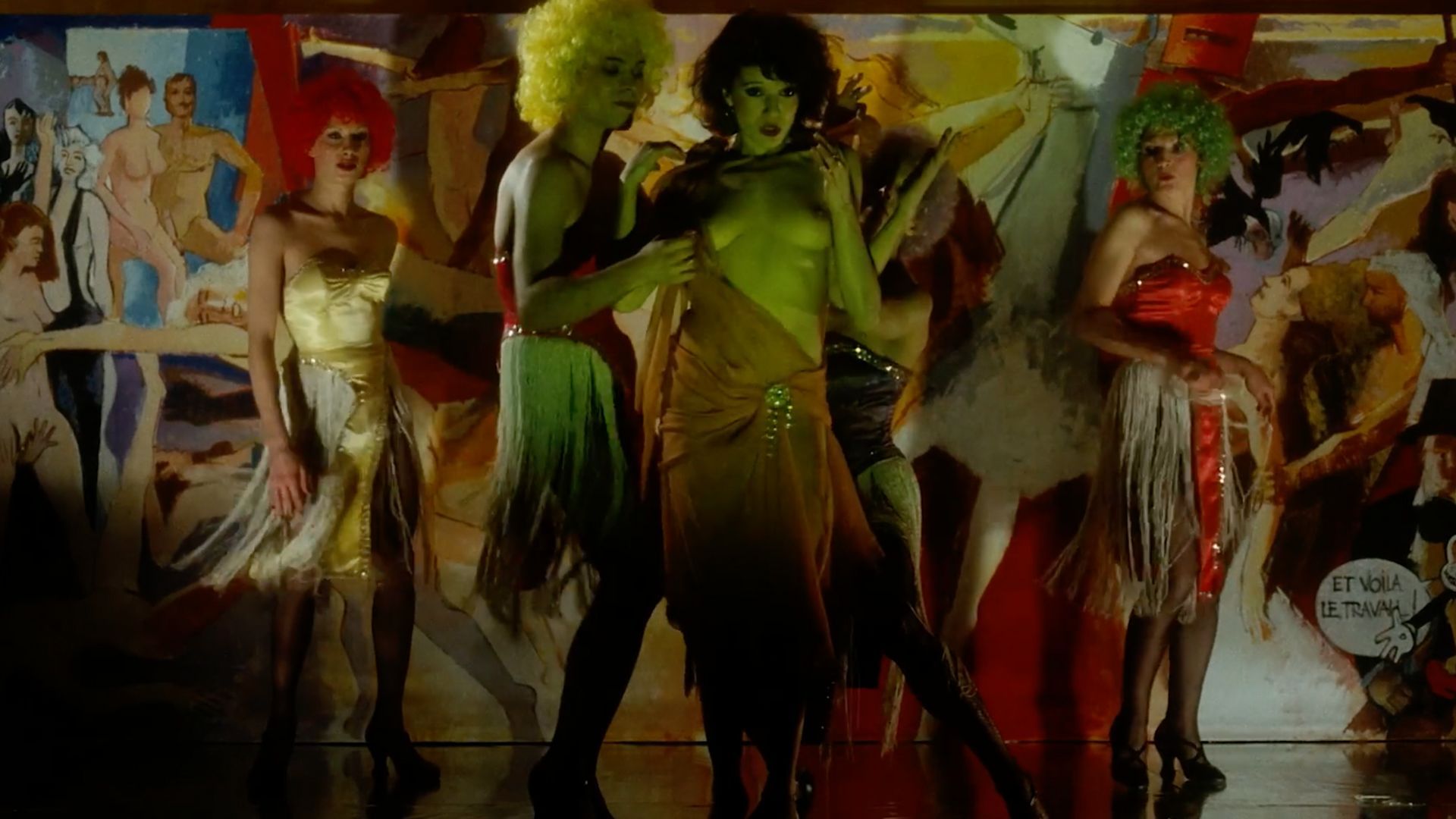“In this story everyone is chasing everyone frantically, to no avail,” says one of the many characters wildly pinballing around the pornographic underworld of Paul Vecchiali’s Don’t Change Hands (1975). This is a film of quick movements—men and women pulling pistols, pulling down their flies, and suddenly breaking into dance or song; sometimes, all in the same sequence. Don’t Change Hands treats genre like a plaything of little consequence, and does the same with sexuality, moralism, and political affiliation.
Severin Films’s new 4K restoration of Don’t Change Hands follows closely on the heels of Altered Innocence’s successful release of Vecchiali’s The Strangler (1970), heralding a burgeoning stateside interest in the wilder crannies of the prolific French filmmaker and producer’s output. Vecchiali passed away in the beginning of 2023, leaving behind seven decades of subversive, and often very gay, low-budget productions and collaborations. Don’t Change Hands is more ramshackle and pop art-inflected than The Strangler; it feels more apiece with the coke-and-noir fueled early films of the German New Wave, although with its muddled conspiratorial plot and theatrical staging, comparisons could be drawn to Godard’s Made in USA (1966) or Rivette’s Up, Down, Fragile (1995) if those French New Wave directors were decidedly more prurient. The most notable difference between Don’t Change Hands and the aforementioned is that it features extended hardcore sequences.
The newspaper mogul and would-be elected minister Françoise Bourgeois (Hélène Surgère), widow of the fallen war hero “Major Bourgeois,” has a minor problem on the eve of the ballots being cast. Someone is blackmailing her with pornographic films featuring her troubled son, so she hires the red-headed hotshot private investigator Mélinda (Myriam Mézières) to track down the perpetrators—a matter of electoral cleanliness; she’s not all that worried about the son. Mélinda soon finds herself in a shoot-out—campily bloodless but with a shockingly high body count—at the Shanghai Lily, a club full of deadly female hustlers that also serves as the stage for the film’s musical numbers, including a theme tune by performer “Mona Mour” which doubles down on the film’s love of wordplay.
Despite the film’s averseness to genre, Don’t Change Hands certainly earns the title of “noir”—there’s nary a shot set during the daytime until the final moments of the film’s denouement. The restoration showcases the inkiest of black Parisian nights; exterior shots are so underexposed that city lights puncture a curtain of darkness that feels inscrutably avant-garde. This aesthetic was certainly an obvious influence on films such as Yann Gonzalez’s similarly grimy porn thriller Knife+Heart (2018).The plot may run in scantily-clad, occasionally incomprehensible circles before arriving at its twisty conclusion, but there are many pleasures to be had: I am especially fond of the optical fake dust and scratch effects that pepper the pornos-within-a-porno and the elaborate floral arrangements that crop up inside the labyrinthian Lily. Among Vecchiali’s many European admirers was Pier Paolo Pasolini, a fervent fan of his 1974 film Femmes femmes, which Vecchiali also co-wrote with his Don’t Change Hands collaborator, the French writer Noël Simsolo. The same year Don’t Change Hands was released, two of its actresses—Sonia Saviange and Hélène Surgère—also showed up in Pasolini’s Salò, or the 120 Days of Sodom, a title with an air of perversity that could easily be applicable to either film.
Don't Change Hands screens Tuesday, June 25, at the Roxie, as part of Frameline 48.



